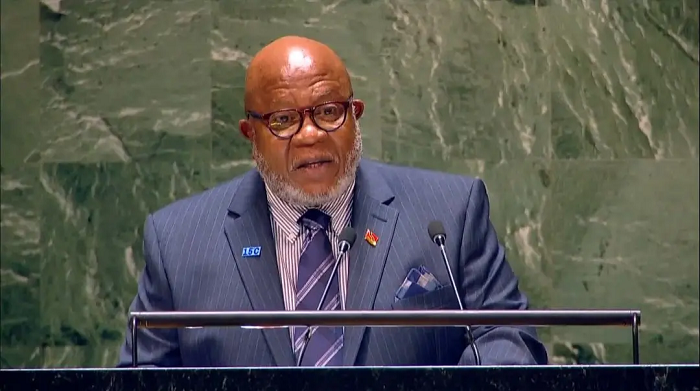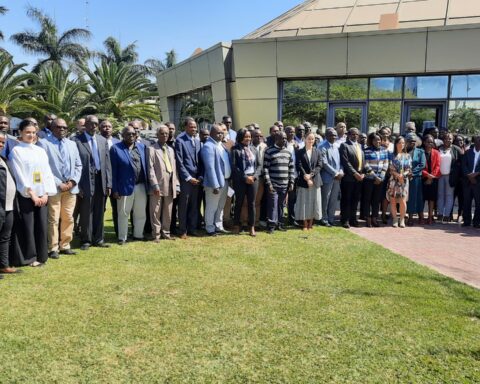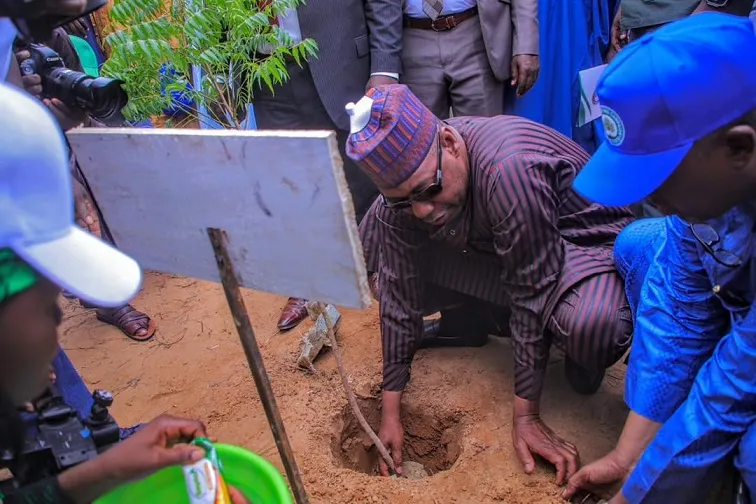UN General Assembly President, Dennis Francis, has said that ending the war in Ukraine, promoting climate action, and ramping up efforts to achieve the Sustainable Development Goals (SDGs) topped the agenda of the High-Level Week.
Francis said this while briefing journalists on Thursday, September 28, 2023, in New York on the outcome of the 78th general debate of Heads of State of Government from the 193 countries that comprise the UN, which ended on Tuesday.
He said that the 78th session of the UN General Assembly (UNGA) marked the first time the gathering has been fully in-person since the onset of the COVID-19 pandemic in March 2020.
Francis said 189 leaders spoke from the rostrum, “an impressive increase indeed over recent years.” Twenty-one were women, or one less than the previous year.
The Assembly President convened the second annual platform of women leaders at the outset of the High-Level Week, which ran from 19 to 26 September. The focus was on the role of women in achieving the SDGs, which aim to deliver a more just, equitable, and greener world by 2030.
“These leaders showcased why it is so important to recognize and elevate the talents and perspectives of half of humanity in tackling today’s challenges,” he said.
The general debate was marked by calls for resolving conflicts in Africa, the Middle East, and Ukraine.
“I was unequivocal when speaking to the membership that we need peace, Ukraine needs peace, and that this war must stop, must end,” he said.
Francis added that the call for stronger climate action also resonated across the General Assembly Hall, in his meetings with leaders, and at two high-level meetings on climate mobility and sea level rise.
Meanwhile, the SDG Summit and resulting political declaration marked the start of a new phase of accelerated progress to achieve the 17 goals by their deadline.
Other high-level meetings focused on Financing for Development and health issues, with leaders approving the first-ever UN political declaration on pandemic prevention, preparedness, and response.
Governments also reaffirmed the right to universal health coverage, set targets to stamp out tuberculosis by the end of the decade, and underlined the need for “serious action” to eliminate nuclear weapons which he called “a moral duty of our time”.
Francis also answered journalists’ questions on other issues of global concern raised during the general debate.
These include reform of the UN Security Council, whose five permanent members – China, France, Russia, the United Kingdom, and the United States – possess the right of veto, allowing them to block any resolution or decision.
At a Council meeting held during the High-Level Week, Ukrainian President Volodymyr Zelenskyy suggested that the General Assembly should be given the power to override vetoes.
Francis said the Council was designed for a world that no longer exists and reform is not a simple task.
“We do need to rethink the structure of the Security Council so that it more aptly represents current realities of global politics. That is going to be a process that will continue to engage the house for some time,” he said.
When asked if he was convinced world leaders will take the action required to achieve the SDGs by 2030, the General Assembly President turned the spotlight on the media and their important role in society.
“These commitments were made in public in front of you guys, who influence public opinion,” he said.
“How will you react if you detect over time that commitments made have not in fact been honoured?”
While expressing hope that the pledges will become reality, he remarked that “at the end of the day, the proof of the pudding, as they say, is in the eating.”
By Cecilia Ologunagba






